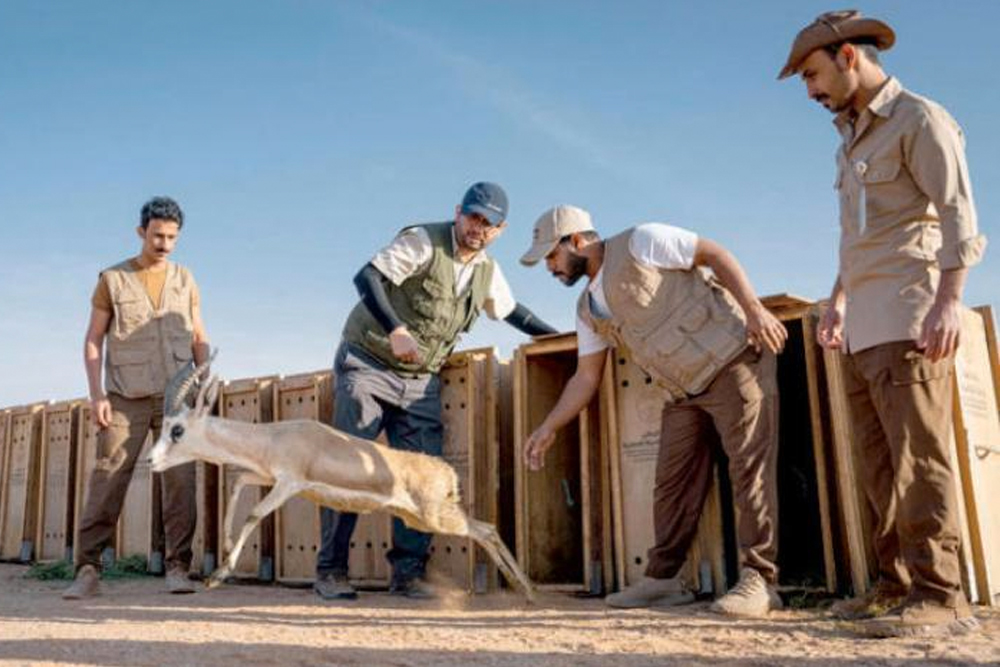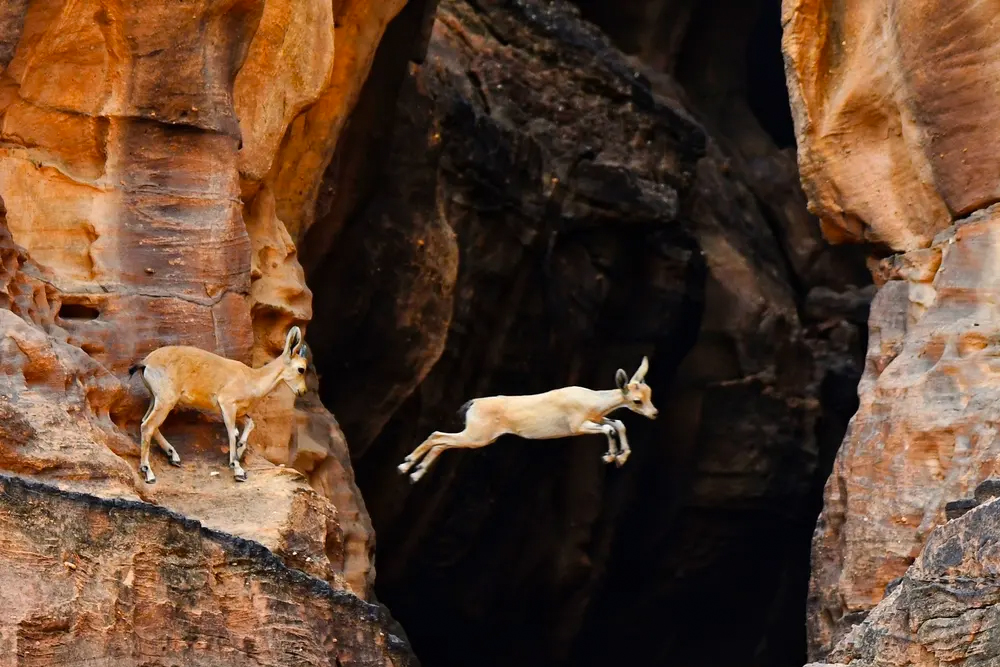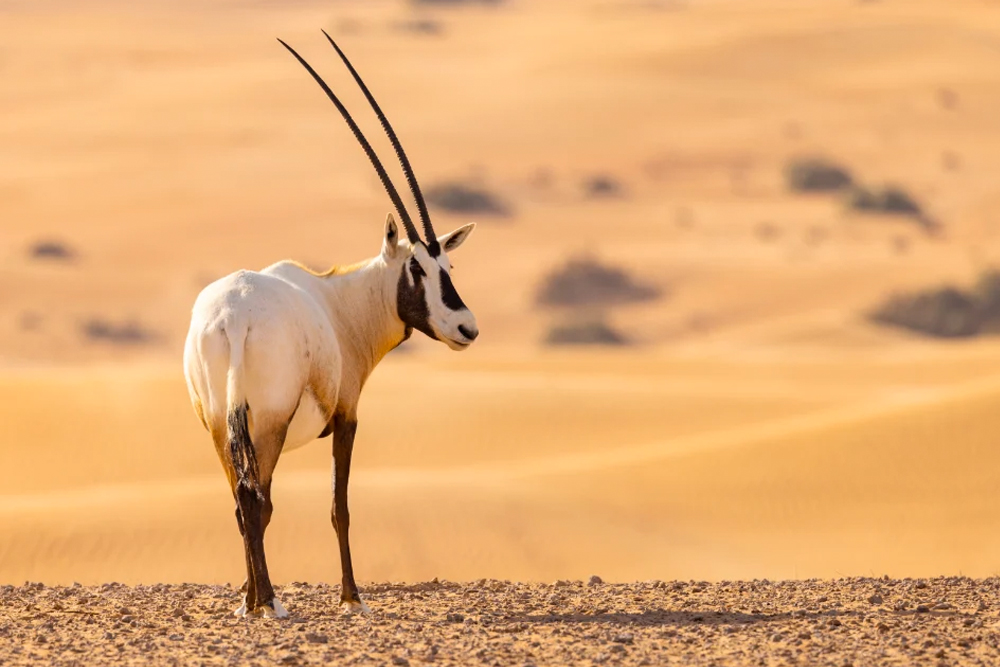
In order to fulfill the goal of the Royal Commission for AlUla, which is to return indigenous species into their natural habitats, more than 1,500 endangered animals will be released in AlUla. The animals will be released in Sharaan, Wadi Nakhlah, and Al-Gharameel, three of AlUla's natural reserves.
650 Arabian gazelles, 550 Sand gazelles, 280 Arabian Oryx, and 100 Nubian Ibex are among the animals released during this winter's five-phase program. About 80 animals were released during the first phase on January 10. The species came from reputable conservation institutes in the Kingdom and the United Arab Emirates.

According to Stephen Browne, the Royal Commission for AlUla's executive director for wildlife and natural heritage, they are a growing force in biodiversity efforts such as species reintroduction, habitat restoration, protected area management, and Arabian leopard conservation. The renovation of AlUla's natural environment is being made possible by RCU's conservation and restoration projects, which will eventually reintroduce the Arabian leopard to the wilds of AlUla.
A crucial phase in the rehabilitation of the reserve will be the reintroduction of the endangered Arabian leopard in 2030. The International Union for Conservation of Nature (IUCN) classes the Arabian Leopard as critically endangered in the wild.

To make sure the animals are fit for reintroduction into the wild, RCU has extensively examined their genetic makeup and physical health. With the use of camera traps, satellite tracking collars, and SMART software analytic tools, the recently released animals will be followed and observed. For hoofed mammals in the area, this will be the first time the compact, solar-powered collars are utilized. The foundation for a five-fold growth in comparison to the total number of animals released earlier in 2022 was built by RCU's scientific research and forethought.

Since the start of RCU's reintroduction initiative in 2019, the latest release is by far the most significant. Released species only flourish in ecosystems that are viable, the wider reintroduction acts as a gauge of the reserves' development. Reintroducing animals also enhances RCU's comprehensive aim to develop six nature reserves while revitalizing AlUla as a prime tourist destination for both cultural and ecological heritage.

















